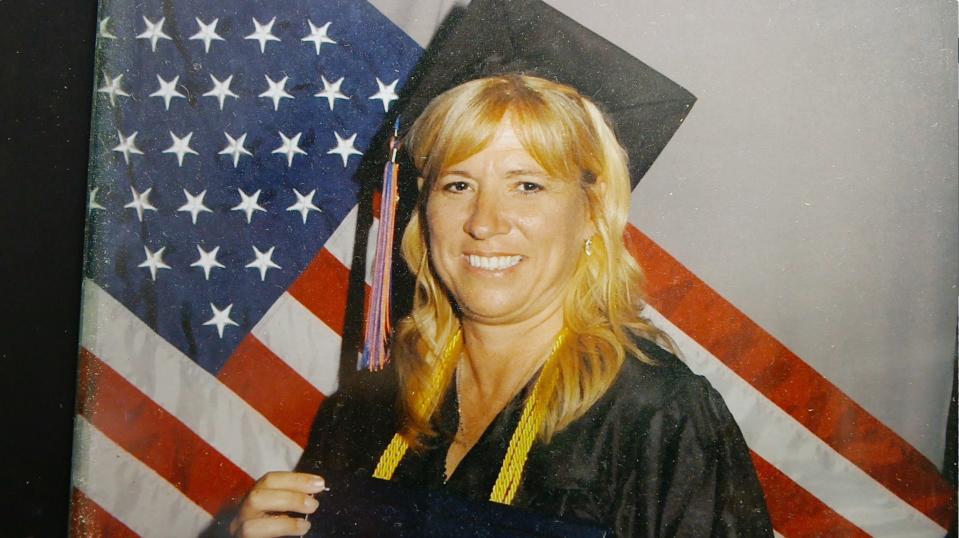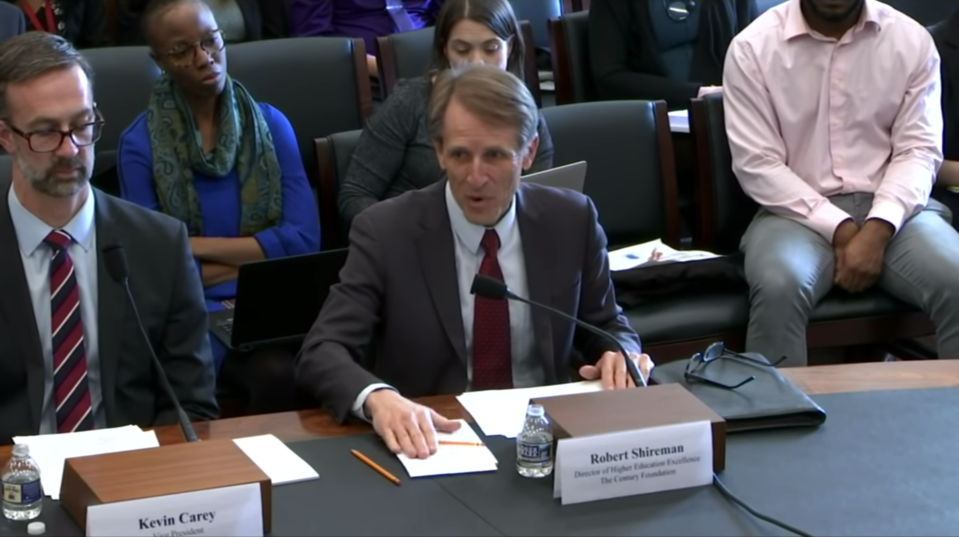'I may never give up': Behind the fight against predatory for-profit schools
Listen on Apple Podcasts | Google Podcasts
This is the fourth part of Yahoo Finance’s Illegal Tender podcast series on for-profit colleges. Listen to the episode here.
Why is that predatory for-profit colleges are able to exploit the American system despite years of high-profile fraud and subsequent attempts toward reform?
The answer is deceptively simple, according to two experts focused on reforming the industry: For-profit schools are enabled and incentivized to put profits above ethics or standards.
Over time, “the schools discover that if they say certain things, people are likely to enroll,” Bob Shireman, a senior fellow at the Century Foundation and an expert on for-profits, told Yahoo Finance’s Illegal Tender. “And the more hungry the school is for money, the further they will go to get people to enroll.”

Recruiters for these schools, meanwhile, “know they're going to get fired if they don't sign up a certain number of people, and they're just constantly being pressed,” said David Halperin, an attorney who focuses on higher education issues. “And when you have those incentives, you sign up people knowing that the programs are not going to help them.”
Some of that pressure has been documented in books such as Tressie McMillan Cottom’s Lower Ed and the documentary “Fail State.” In this episode of Illegal Tender, we discuss the conditions that allow these schools to thrive with two top experts.
‘That’s where the money is’
Enrollments at for-profit schools surged in the 2000s and peaked in 2011 as the U.S. economy emerged from the Great Recession.
The numbers “tend to be countercyclical,” Emily Wadhwani of Fitch Ratings told Yahoo Finance in a recent interview. “As the economy grows and expands, [for-profit colleges] see fewer students, and then as the economy cracks, they get an uptick.”

A recent report by the Century Foundation, where Shireman works, found that marketing savvy for-profit schools were ramping up marketing amid the pandemic-induced recession of 2020.
“Especially when it's online, there's no physical limit to the number of students that you can enroll,” explained Shireman, who served as deputy undersecretary at the Department of Education under the Obama administration. “The students can't tell that the faculty member that's hired is swamped, in terms of the number of students that they need to serve, or that they're being paid very little. And you end up not getting the real attention that you need.”

This is the fourth part of Yahoo Finance’s Illegal Tender podcast series on for-profit colleges. Listen to the episode here.
For-profit schools also target nontraditional students by promising credential and earning power prospects that may otherwise seem out of reach.
“That's where the money is, and it's usually federal money, federal student loan money and grant money,” Shireman noted. “Especially older adult students: the 25-year-old, not living with parents, not in school. They don't have access to people who will help them identify other options… they are very vulnerable to someone who poses as an advisor and is helping them figure out this next step in their life.”
‘I may never give up this issue’
For Halperin, years of experience with for-profit colleges and horror stories have energized his activism.
“I was so profoundly concerned about the corruption in this issue and all the harm it causes to students and the ripoff for taxpayers that I decided I was going back to being... advocate and advisor to organizations,” he said. “This was the one issue I would take with me and not give up until we really, really, drove all the bad actors out of this industry.”
“And that may never happen,” Halperin added. “So I may never give up this issue.”
This is the fourth part of Yahoo Finance’s Illegal Tender podcast series on for-profit colleges. Listen on Apple Podcasts | Google Podcasts
Aarthi is a reporter for Yahoo Finance covering consumer finance and education. Follow her on Twitter @aarthiswami. If you attended or worked at a for-profit college and would like to share your experience, reach out to her at aarthi@yahoofinance.com
Read more:
‘The entire apple orchard is poisoned’: Experts call out for-profit college marketing tactics
‘Dollar signs with heartbeats’: How for-profit schools blazed a trail of pain in America
Some for-profit colleges double dip in both PPP and CARES coronavirus stimulus
'They stole my time’: For-profit college students share horror stories
Read the latest financial and business news from Yahoo Finance
Follow Yahoo Finance on Twitter, Facebook, Instagram, Flipboard, SmartNews, LinkedIn,YouTube, and reddit.

